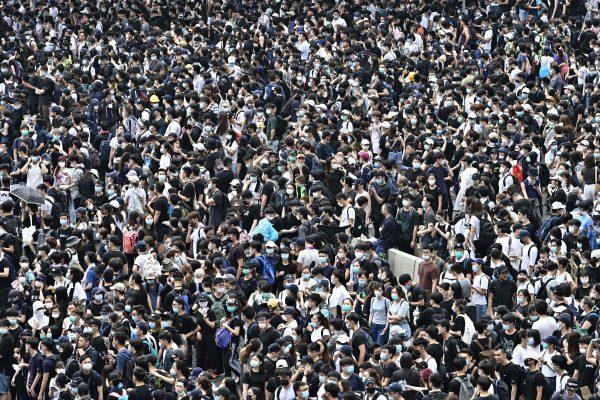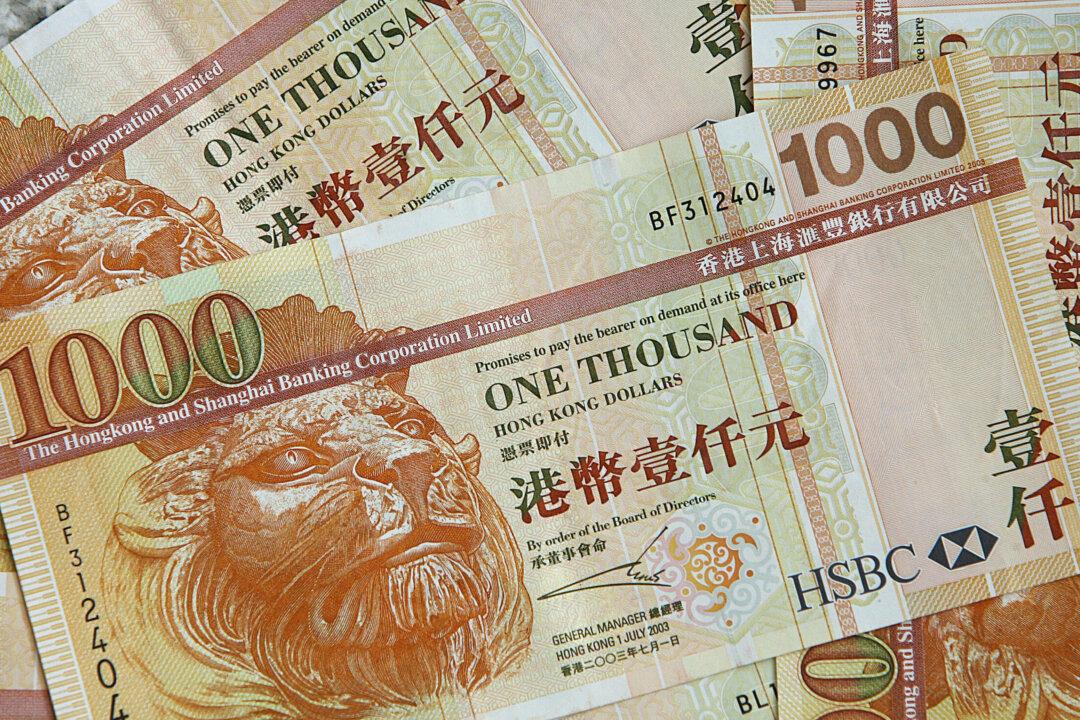Hong Kong netizens recently encouraged each other to exchange their money into U.S. dollars as much as possible in order to place financial pressure on the government—in the hopes of forcing it to scrap the controversial extradition bill.
The bill will grant Hong Kong’s chief executive, the city’s head of government, the power to approve extraditing a suspect to mainland China, without the need for approval from the legislature.
The proposals have drawn broad opposition, as citizens have expressed concerns that given China’s disregard for the rule of law, the Chinese regime could charge its critics with impunity.
Exchange Into US Dollars
Some Hong Kongers thought of a creative way to protest the bill.“The value of the local currency represents the people’s confidence in the government,” Ashu explained. “By exchanging your spare money into foreign currencies, you can avoid the potential loss in value due to the Hong Kong dollar depreciating as a result of the extradition bill—and it’s a way to express your dissatisfaction and distrust with the government.”
U.S. lawmakers, also concerned about the bill eroding the city’s autonomy, has introduced a U.S. legislation that would require the United States to review whether special trading privileges currently afforded to Hong Kong should continue.
But with the extradition bill on the horizon, the U.S. senators are calling for the U.S. government to issue an annual certification of whether Hong Kong is sufficiently autonomous to justify special treatment.
Some Hong Kong citizens are already hypothesizing about whether the potential flight of capital would cause the Hong Kong dollar to depreciate, or cause an even greater financial crisis.
Ashu calculated that if just 30 percent of the one million protestors from the June 9 march have extra savings and can exchange $10,000, it’ll be $3 billion in total.
Although $3 billion is less than one percent of $427.8 billion, some like Ashu believed that the joint effort could still impact the financial system.
Ashu commented that if Hong Kong’s financial system were to crash, mainland Chinese senior officials and business executives who have assets and property in Hong Kong would face trouble. But if Hong Kongers withdraw their cash and exchanged into U.S. dollars in advance, they won’t be impacted.

Hong Kongers’ Concerns
But some Hong Kongers who wanted to exchange their money recently encountered trouble. On June 10, Hong Kong social media began circulating news that local banks were lined up with people trying to exchange their money into U.S. dollars. There were reports that one bank was unable to exchange $50,000 in full for a customer and separated the amounts into two transactions of $25,000.Hong Kong has a linked exchange rate system, which can make sure the amount of foreign currency reserves, as well as the exchange rate of U.S. dollars to Hong Kong dollars, is fixed within the range of 7.75 to 7.85 (per U.S. dollar).
In 2019, the exchange rate was around 7.83 to 7.85 until June 12, the day Hong Kong police used rubber bullets, bean bags, tear gas, and pepper spray to disperse protesters.
In the exchange market, the Hong Kong dollar decreased from 7.836 to 7.825 in one day.
Expert’s Opinion
Victor Ming Tak Ng, a Hong Kong senior banker and visiting professor at the Baptist University in Hong Kong, does not believe the linked exchange rate system can be changed for now.Ng is more concerned that the Chinese authorities could indirectly impact Hong Kong. He believed that if Chinese leader Xi Jinping cannot come to a trade agreement with U.S. President Donald Trump at the upcoming G20 Summit—which remains unconfirmed on the Chinese side—the Chinese yuan will depreciate dramatically.
If the Chinese yuan is devalued by 10 percent, “the [Chinese central government] will take U.S. dollars from our [Hong Kong reserve], which is the biggest risk,” Ng said.





